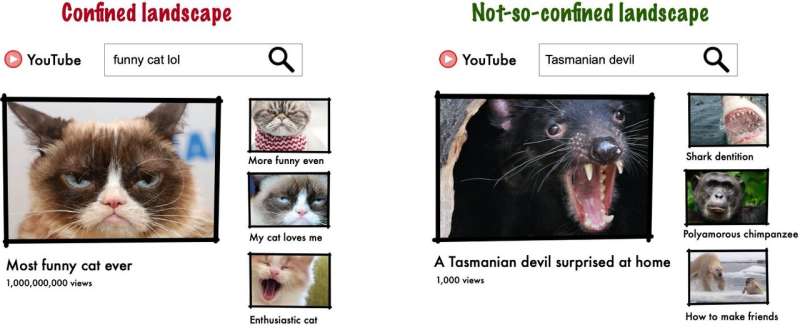How we end up 'confined' on YouTube

Everyone who has used the YouTube video platform has already had the feeling: the successive recommendations generated by the site's algorithm sometimes "confine" us in a bubble of similar content.
Camille Roth, a CNRS researcher at the Centre Marc Bloch—Franco-German Research Centre for the Social Sciences (CNRS/MEAE/MESRI/BMBF), and his colleagues Antoine Mazières and Telmo Menezes, have studied this phenomenon by exploring recommendations from a thousand videos on different subjects, thereby running through half a million recommendations.
Their results show that contrary to the algorithms of other platforms, which seem to promote the exploration of novelty and serendipity, YouTube's is actually an exception, generating a number of confinement phenomena.
A user's navigation based on recommendations can be seen as a movement within a network of interconnected videos: by starting out from a particular video, the recommendation network is more or less closed, in other words it leads to content that is more or less similar and redundant.
In addition, the content that leads to the most confined recommendation networks also seems to revolve around the most viewed videos, or the ones with the longest viewing time.
This research was published on 21 April 2020 in the journal PLOS ONE.
More information: Camille Roth et al, Tubes and bubbles topological confinement of YouTube recommendations, PLOS ONE (2020). DOI: 10.1371/journal.pone.0231703
To learn more visit: cmb-css.github.io/bubbletube/




















